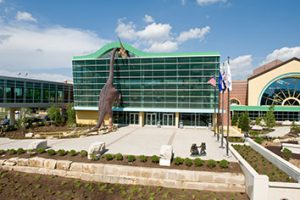Fed moves to ensure companies can tap bond market for funds
The program will purchase existing bonds on the open market, as opposed to newly-issued debt. The announcement boosted the stock market, which was already rebounding from early losses.
The program will purchase existing bonds on the open market, as opposed to newly-issued debt. The announcement boosted the stock market, which was already rebounding from early losses.
In the 10 weeks after the Paycheck Protection Program was launched, the SBA says it has processed 4.5 million loans worth $511 billion. But it has yet to reveal the recipients of taxpayer aid.
While it’s hard to say what the future holds for America’s roughly 30 million unemployed, here are some key factors that will determine how that future unfolds.
Nearly 5,000 COVID-19 cases and more than 1,000 deaths have been reported in Indiana long-term-care facilities.

The Indianapolis-based drugmaker said it is launching a global trial for the anti-inflammatory drug baricitinib, which it launched two years ago to treat moderately to severely active rheumatoid arthritis.
New research by Bloomberg Economics suggests the labor market will initially recover swiftly, but then level off with millions still unemployed. Jobs in the hospitality industry are among the most at risk, alongside retail, leisure, education and health.
From Walt Disney World in Florida to Holiday World in Indiana, amusement parks are taking all kinds of steps to reassure the public and government leaders that they’re safe to visit amid the coronavirus crisis.
The Indiana State Department of Health on Sunday said 348,391 people have been tested so far, up from 340,637 in Saturday’s report—an increase of 7,754.
The Lilly Foundation’s financial commitment over five years is aimed at finding solutions to racial inequity and social injustice primarily in Indianapolis, its surrounding counties and nationally.
The Indiana State Department of Health said 38.8% of the state’s intensive care unit beds were still available. About 13% are being used by COVID-19 patients.
Friday’s rebound was a reversal for the market, which sold off for three days in a row as a rise in COVID-19 cases and a discouraging economic outlook from the Federal Reserve dashed investor optimism for a quick economic recovery.
The announcement came on the same day that the Centers for Disease Control and Prevention “strongly encouraged” organizers of large gatherings to tell participants to wear cloth face coverings when at such events.

So far, the program has enrolled 275 people with diabetes. Health workers in the neighborhoods have completed more than 2,300 check-ins with them—helping them set up doctors’ visits, coaching them on how to shop for food, and helping them with dozens of related problems, from transportation needs to medical insurance.
For more than three decades, Gallagher, 61, has supervised mosquito control programs for Marion County, overseeing a small army of technicians who spray ditches and collect mosquitoes from traps around the county to track the variety and size of the mosquito population.
The state said Friday that 335,180 people have been tested for the coronavirus so far, up from 327,342 in Thursday’s report—an increase of 7,838. That number marks a new high in daily testing.

Several of the city’s largest cultural attractions are rolling out plans to reopen after long closures during the pandemic.
With business and air travel barely breathing, hotel companies are betting on the leisure traveler as a short-term strategy for survival.

Marion County Public Health Department Director Virginia Caine said she is “very optimistic” that schools will be able to reopen, and she aims to have a definitive answer by July 15.
Cases are rising in nearly half the states, according to an Associated Press analysis, a worrying trend that could intensify as people return to work and venture out during the summer.
The Dow Jones industrial average on Thursday had its worst day since March 16. The decline marked the fourth biggest point drop for the Dow on record.